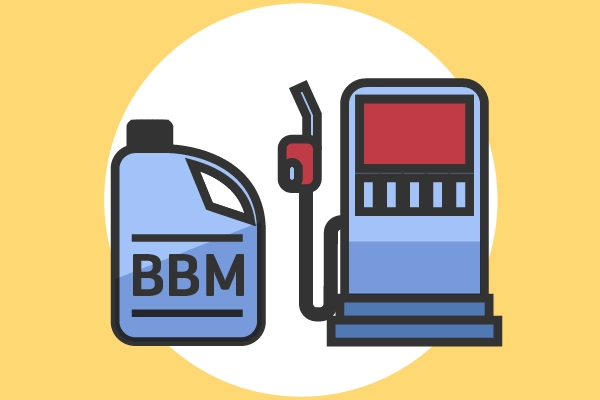Government Optimally Holds Fuel Price Increase
By: Lisa Pamungkas )*
The government continues to evaluate and withhold the planned increase in the price of fuel oil (BBM). Previously, several countries such as the United States, Britain and Australia had made adjustments to fuel prices in response to rising world oil prices.
Puan Maharani as Chair of the Indonesian House of Representatives revealed that until now the government has not proposed an increase in fuel prices. He admitted that he did not know whether the government would increase the price of fuel, even though the price of fuel abroad was already very high.
Until now, the government still provides subsidies of almost Rp 502 trillion. This is intended to make the price of Pertalite and subsidized diesel fuel more affordable in the community. The subsidy was given in the midst of a surplus of the state budget (APBN) of Rp 106 trillion.
Indonesian President Joko Widodo (Jokowi) said that the government provided subsidies for fuel, LPG and electricity of Rp 502 trillion so that the price of fuel in the community would not soar. Jokowi assessed that inflation was also successfully controlled in the range of 4.9%. This figure is far below the average inflation rate for ASEAN, which is around 7% and developed countries, which is around 9%.
For fuel, Indonesia has tried to keep the price from increasing as happened in other countries. This is because the government continues to provide subsidies through the APBN so that the prices charged to the public do not increase.
Previously, the Secretary of the Coordinating Ministry for Economic Affairs, Susiwijiono, said the government was considering increasing the price of various types of fuel. The high price of world crude oil is of course a burden to the state budget, especially if the price of fuel continues to be held back. Moreover, the economic value at the current price set by the government is already very high. He also ensured that if the government was forced to raise fuel prices, the value of the increase would not be too high.
Not only that, the government will also distribute social assistance to the lower middle class. Especially those who are directly affected if fuel prices are forced to increase.
Minister of Energy and Mineral Resources Arifin Tasrif said the government was formulating rules regarding restrictions on the purchase of pertalite type fuel. In addition, the government is also reviewing the plan to adjust the fuel price.
According to Arifin, the fuel price adjustment needs to be reviewed because it has had a negative impact on state finances. Therefore, there is a need for a comprehensive evaluation.
On a different occasion, Minister of State-Owned Enterprises Erick Thohir admitted that he had not received special instructions regarding the increase in the price of subsidized Pertalite fuel. Although the Ministry of SOEs owns 100% of the shares of the national energy company PT Pertamina (Persero), the decision to adjust subsidized fuel prices rests with the Coordinating Ministry for the Economy, Ministry of Finance and Ministry of Energy and Mineral Resources. He said that the increase in fuel prices has the potential to reduce the subsidy budget allocation that has been prepared by the government until the end of 2022.
Meanwhile, the Ministry of Finance has set an energy subsidy budget of Rp 210.7 trillion next year, excluding energy compensation paid to PLN and Pertamina. Next year’s energy subsidy budget will increase from this year’s budget ceiling of Rp 208.9 trillion.
The budget allocation is for subsidies for diesel fuel, kerosene, 3 kg LPG and electricity which are more targeted. The subsidized fuel, the type of pertalit and pertamax, is included in the special assignment fuel which is included in energy compensation.
Erick said that Pertamina must maintain the guarantee of service to the community. According to him, efficiency must be carried out in all lines in BUMN regardless of the assignment.
He also emphasized that Pertamina did not suffer losses as previously reported. Erick also said that cash flow or cash flow deficit and loss are two different things.
Even though world oil prices are high, the government is still holding back the price of Pertamina’s fuel, for example Pertalite, by disbursing subsidies so it doesn’t go up too. Meanwhile, non-subsidized fuel, such as Pertamax, had increased to Rp 12,500/liter, but it was still far below the economic price.
Suahasil Nazara as Deputy Minister of Finance said that the government was still holding back on fuel prices in order to keep people’s needs met. The effort to contain the increase in fuel prices is the government’s desire to protect the public.
Previously, Sri Mulyani as the Minister of Finance had estimated that by the end of the year the amount of subsidies would increase to Rp 284 trillion. In fact, the target for subsidy spending in the APBN at the beginning of the year was Rp. 207 trillion.
The highest increase was in the fuel and electricity compensation budget. For energy compensation costs, the government will issue a budget of up to Rp. 293 trillion.
Of course this shows that the government
